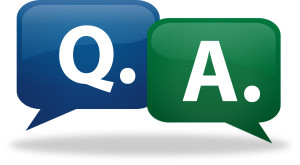13 Jul Your CFPB Questions Are Answered!
 Through many of our training classes, we’ve jotted down some questions from Realtors about the “Consumer Financial Protection Bureau” (CFPB) and upcoming changes and have answered a few of them here. We hope you find this information useful! Stay tuned for more Q&A posts!
Through many of our training classes, we’ve jotted down some questions from Realtors about the “Consumer Financial Protection Bureau” (CFPB) and upcoming changes and have answered a few of them here. We hope you find this information useful! Stay tuned for more Q&A posts!
Should the agents get emailed financial info from the borrower even if the borrower is just CCing the agent? This would really be up to the agent and how hands on they are with the buyer’s lender. It would be safer if this type of information was only provided to the lender directly. If the agent does want to be provided this information, it is about having a plan in place to keep that information in a secure or stored on a protected computer with proper safeguards.
Will Escrow/Lender be notifying us – the agent – when the new Closing Disclosure is sent to our buyers? This is a good question for each agent to ask their buyer’s lender in the beginning of the transaction. Again each lender will do things a little differently. Lenders have said that the Closing Disclosure (TRID) will be sent to the settlement company (Escrow) when it is sent to the Buyer, but the settlement company (Escrow) cannot provide it to the agents. Some lenders have said they might have the buyer sign an authorization to provide the Closing Disclosure to the agent.
Is the EMD (Earnest Money Deposit) at risk if borrower changes their mind during the closing disclosure periods? This would really be dependent on how the contract is written. If the loan contingency is past and the delays are caused from last minute changes it could possibly open the buyer up to losing the deposit if the seller pushes to cancel and take the deposit.
All this seems to be about the buyer, what about the seller? The CFPB is a set of rules written for the lender to follow. Since the lender is working with the buyer/borrower they really only apply to the buyer/borrower. The CFPB is the “Consumer Financial Protection Bureau” which is working to protect the consumer and the consumer by definition is the person purchasing or consuming something.
Send us any questions we can help answer for you regarding the new CFPB TRID/Closing Disclosure or contact us today to learn more about our CFPB training sessions available.
